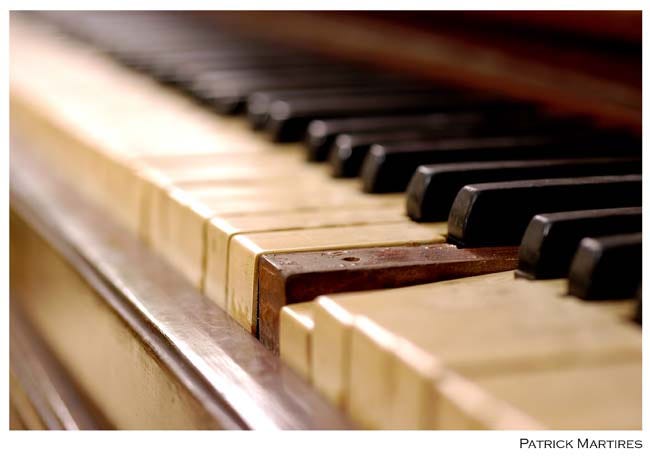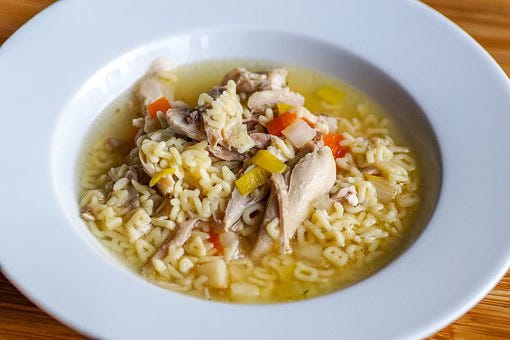Note: You can start reading here or anywhere, then go back. See Table of Contents. Come in the middle? Robert is the narrator who discovers after his wife Lena has died that she had a lover, Isaac. Evan is Isaac’s wife. Robert is on a search for how he lost Lena: He’s creating the story through memory, invention and a search for the truth and his role in what happened—and by stalking Isaac.
Isaac didn’t understand the importance of the riddle. The riddle was meant to save him the way a man might save another from a burning car or house. On the other side of every right action lies a taboo, something that we resist or give ourselves to. The riddle reveals that to say “nothing” implies the knowledge of “something,” that absence can’t be understood without presence. I’m not sure that Evan understood this the way I’ve expressed it while she played her games with Isaac. I believe she made an effort like the one Lena, in her black nightgown, made.
On the other side of the conflagration that engulfed my marriage was the sea.
I recall the trip to Italy when Lena turned forty, long before I understood that Lena would take a lover, long before that, I knew something was amiss, to understate.
I took Lena to a cliff town, Positano in Italy, a village above the sea, a town that sits on rock, straight up above the water, a climb. The night before we went, she dreamed of a childhood friend, whom she used to watch practice toe dancing at her house on a bare wood floor in front of her mother. How beautiful the dance was to her, she told me, the straight leg on the straight foot, the impossible: Standing on one’s toe and moving.
And then suddenly she wasn’t on her feet, but was able to jump and float with her legs spread out in front of her, wide as if she were sitting straddled on the floor for a stretch, a stretch that she did mid-air, floating, as if she could fly.
Now I see she told me this dream as code for what she missed from me. She told me the dream before we went on the vacation so that I’d know she still wanted to straddle me, wanted what she believed was impossible—the straight leg on the straight foot—crude but apt. I understood the dream and in Italy I tried to find her again. I tried to make love to her. But I failed again and again.
I took her for walks in the cliff village with its rocky façade and narrow streets that wind their way around the mountain. One night, very late, after we’d had dinner in a café and too much wine, and I was bereft with my failure and my inability to talk about it with her, I left her in the café, told her I’d be back soon and walked alone. The walk was long and arduous because of the hills and the places where the town simply drops off to a cliff without warning, without a guard rail. One simply comes to the edge and there’s nothing but a drop. I was gone a long time, but when I returned to the café, it was as if she hadn’t noticed my absence. A dark-haired Italian, or perhaps Moroccan—the accent was slightly off—sat at our table. He had yellowed teeth, from smoking or lack of dental care, a tooth prominently missing on the left, facts I presumed he didn’t consider worthy of note, certainly not embarrassment because he revealed with ease a wide dimpled smile, so unlike that of my mother who has spaces between her teeth and doesn’t smile for photographs, or as I remember, ever. Lena’s link with the toothless Italian-Moroccan, the stereotypical dark-haired foreigner, typecast down to the gray spiced in his black hair, diminished her. He’d bought her a vin santo and given her a cigarette that she was smoking. I’d never seen her smoke but she smoked as if she’d done it before. What else had she done without me? I hated her for enjoying the man, for flirting with him—old enough to be a rival, young enough to threaten me. I hated her for smoking his cigarette.
When we went outside to our hotel, it was late. The cafés were closing. It was dark and the walk down the hill—our hotel was at the sea, all the way down—was a bit treacherous. I should have taken her arm but didn’t. She reached for my arm and I pushed her away, said, “That’s the way old women hold old men’s arms. You make me feel old.” She didn’t respond to that but told me instead another dream from the night before, as she walked, quite drunk and quite near the edge of the cliff. She said she could jump and float in her childhood friend’s stretch, the stretch with her legs wide open. But she couldn’t adjust the height she might go, staying so low to the ground that dogs and cats were able to leap up and barely scratch her. “They frightened me,” she said, “but they couldn’t get at me. Still, I couldn’t get quite far enough away from them to be safe. At times my jumps were startlingly long and pleasurable, floating, free, as if the weight was lifted from me and I existed in a perfect balance of air and body in my open straddle.”
I believe she told me this dream to warn me she was unsafe, so unsafe that she would take a lover, that she might find a way to sleep with the Italian in the bar—or someone else.
We came to a path where the road split off. I told her to wait in the dark and I took the path. It went up to the edge of the cliff where I could look down and see her standing alone, unsafe in the darkness, unsteady with wine. I could see the water shimmering below me like a dark wrinkled sheet. I left her there long enough to make her afraid. And then I returned and accompanied her to our hotel without touching her arm or hand.
In the morning, she was having espresso in the plaza outside our hotel and the dark man who wore a taupe and green shirt, one like Isaac owns, stopped me as I walked toward her. He said, “Why did you leave her alone that time of night? She’s an attractive woman. She could have been in danger. You are lucky I was watching her.” I knew he wanted to sleep with her, but I invited him to have coffee with us. I wanted to behave with her and him as if I didn’t care. He flirted openly with her at breakfast. She behaved with both pleasure and reserve.
On that day and night in Positano, I desperately needed her, but I was unwilling to gamble on safety. Heroes gamble on safety.
I may argue that she was her own undoing. She betrayed. She acknowledges this. Not to be forgiven. Yes, that’s possible—not to be forgiven.
I was busy in the world, quick at my work, brisk at meals, efficient and orderly when I’d made love to her, in control of my erection, when I was able to have one, and in control of my ejaculation, unlike Isaac who burst into Evan with the illusion of Lena’s rosy nipple and vulva in his mind.
Since she died, Lena has become for me a house that’s built with rooms but no walls, framed but with floors.
I have kept but don’t live in our house because she is absent. I have a room in a house on 21st Street where I live now. During the day, I work. At night I seek her here.
I’ve met the man who owns the house next door. He’s a widower who doesn’t say much, listens well, has a quality of restraint that’s not like mine. He listens to Debussy and I associate him with that music for the piano, music that seems to me to rise from the keys without my understanding, a quiet you can hear.
Lena’s mother would lay before me a bowl of her chicken soup, thin wisps of chicken floating with slices of carrot and sprinkles of parsley. And there it was: unspoken solace.
Music has done this for me.
This man who lives near me does this for me without his knowing it, I suspect. He must know unconsciously that he comforts in this way. This word unconscious I use not to mean unaware, as I was with Lena, but to mean knowing without needing to reason.
I can see Lena in his presence, in his safe quiet, a quiet she craved. I like to imagine her in the house I pretend has rooms that are framed without walls, aware of me in the apartment nearby, a man she’d know could see her and who wanted her. She’d think, I’m beautiful. In the open house she’d have small drawers where she could arrange and rearrange private things: jewelry, special folders, and a velvet purse, maroon, so small it wouldn’t hold much but would be precious to her: the sheet rock screw in its tiny zippered pocket.
All these things she’d arrange again and again in the drawers, put them away. And through these open walls she’d hear me play Debussy. And I’d do something silly like stand on my baby grand and yell, “You can observe a lot just by watching,” and then she’d walk to me with her arm in my quiet neighbor’s arm and he’d say and she’d agree, “We must have music.”
She’d no longer cry, “Fire,” because she’d know that, though no one else could see the fire, I’d seen it.
My list: A fifty-two-year-old man from Honolulu died trying to save his family from a fire that engulfed their house. His wife and daughter survived, but six other family members died. A thirty-one-year-old man from Rochester, Indiana, and a fifty-two-year-old man from Kewanna, Indiana, rescued a state trooper from his burning cruiser after a crash. A fifty-four-year-old man from Ontario tried to save his seventy-five-year-old neighbor from a fire. He pulled her from the house, but she died later from smoke inhalation. I know I’ve listed this one before, but I left out the smoke inhalation, the way the woman died. She smothered.
A fire may both burn and smother, may, in fact, be more likely to smother its victim before it burns her. It’s the smoke, the lack of air, the smoke sucking away the oxygen and being fed itself by the oxygen that does this—the way I placed my fingers on the flame when I was a child and put the flame out without burning myself.▵
Coming next: Isaac and Lena, chapter 21
Table of Contents
Love,












“It’s the smoke, the lack of air, the smoke sucking away the oxygen and being fed itself by the oxygen that does this—the way I placed my fingers on the flame when I was a child and put the flame out without burning myself.”
Masterful writing here, Mary. I love how you tell us about Robert’s deep inner conflict, the way he causes pain to others, believing — or perhaps not — that he is indifferent to his own hurt. Stunning.
Love how palpably you humanize Robert--his suffering, anger, and hurt--all over what he is fearing is *about* to take place in his marriage. It makes him so multi-dimensional rather than a 2D villain-voyeur. Masterful.